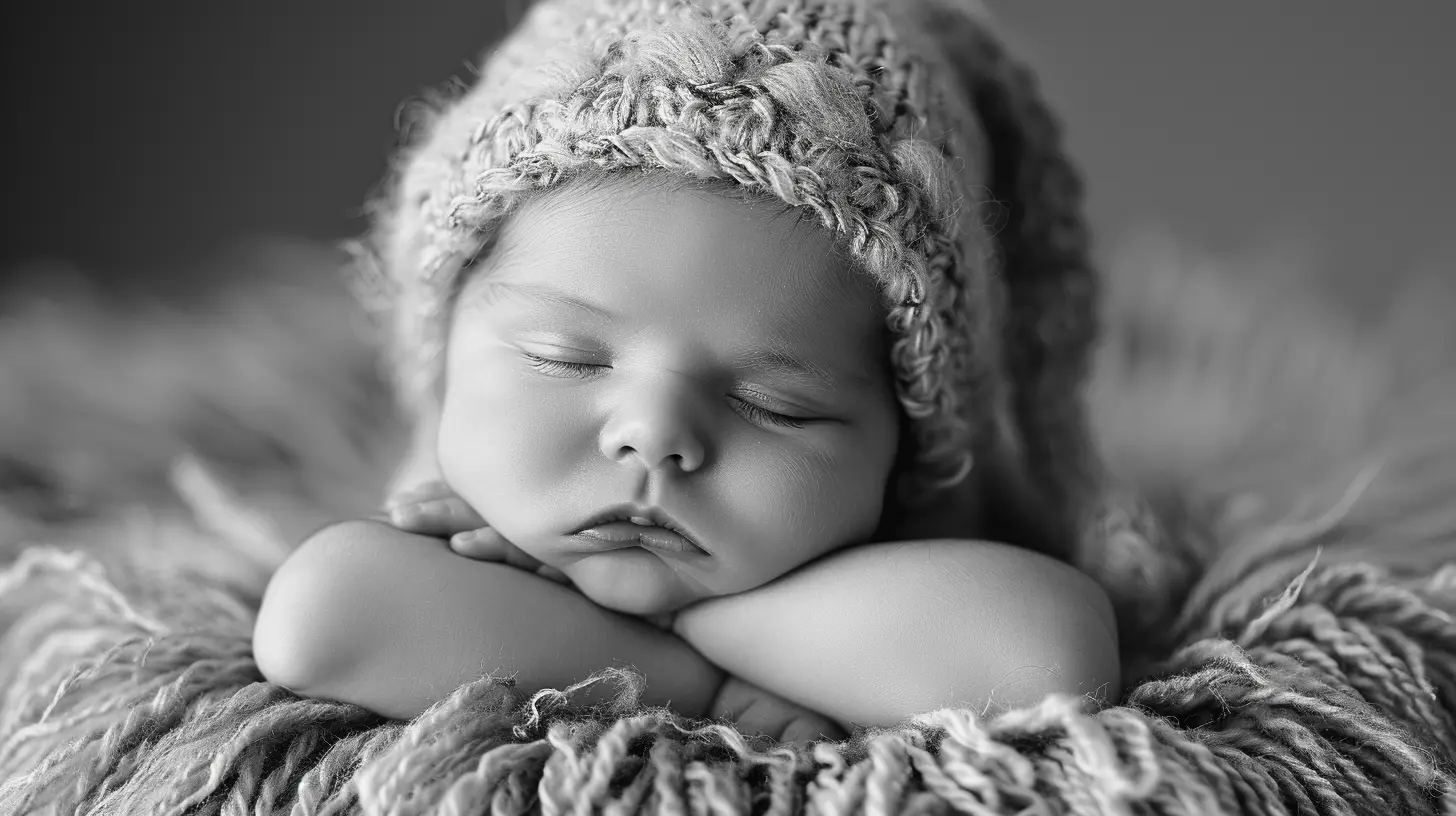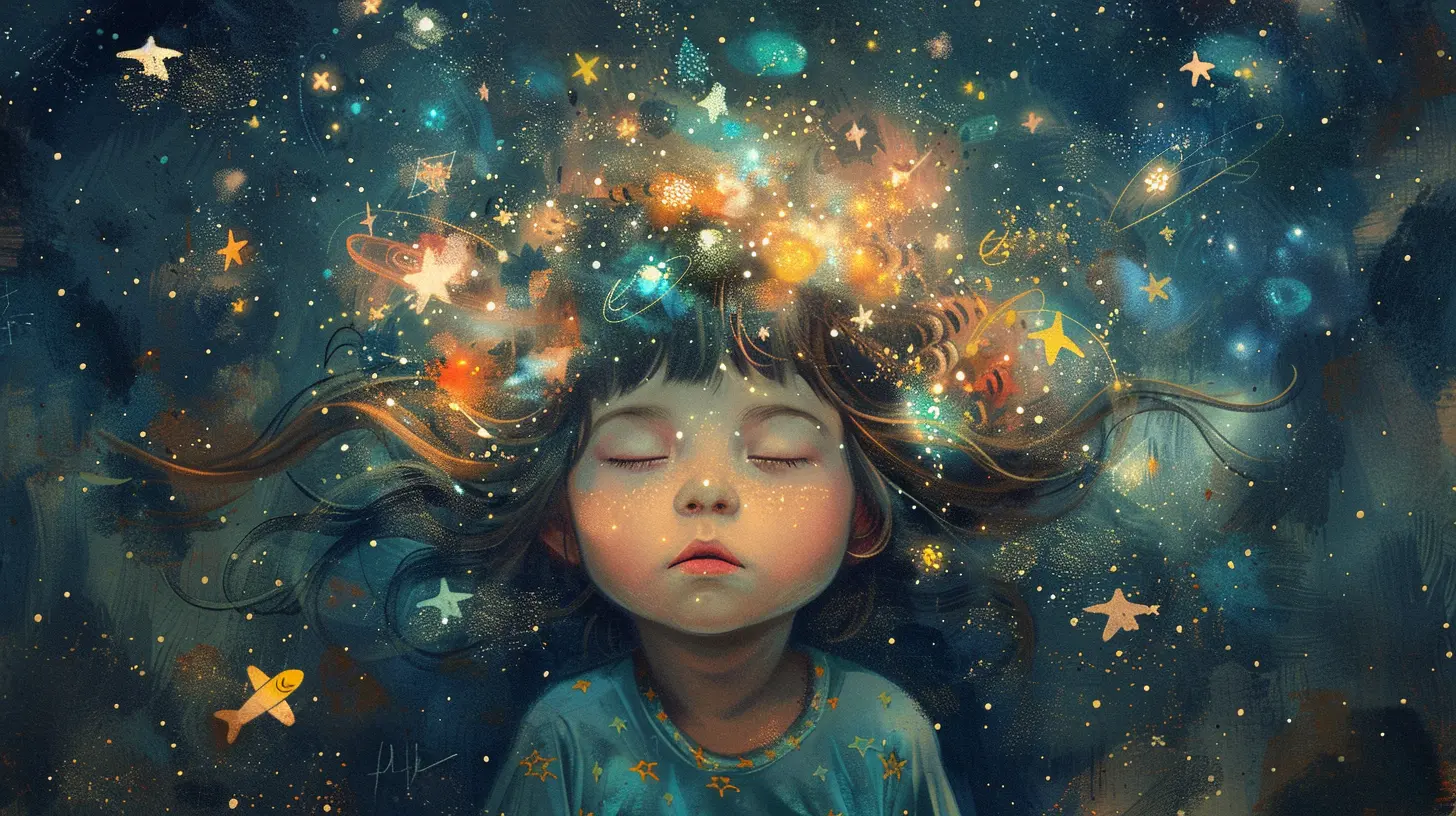The Connection Between Sleep and Your Baby’s Brain Development
1 July 2025
Let’s be honest—sleep is the unicorn of parenting. You’ve either got it on a good day or you're chasing after it like a toddler chasing bubbles in a windy park. And while you're crying into your third cup of cold coffee, wondering if your baby will ever sleep through the night, there's something magical happening behind their closed eyelids.
We’re talking about brain development—the fireworks show you can’t see but is happening nightly (hopefully) in that tiny, adorable head. So, let’s grab that parenting cape, pour yourself another cup (make this one hot, you deserve it), and dive into the fascinating world of baby sleep and brain growth—with a dash of humor and a whole lot of real talk.
Why Baby Sleep Isn’t Just for Your Sanity
First off, yes—your precious sleep matters, but your baby’s sleep? It’s like the Wi-Fi signal for their developing brain. The stronger the signal (read: better sleep), the more data the brain downloads and processes every night. It's during those uninterrupted hours of slumber that your baby’s brain is filing away all that “firsts” they’ve been experiencing—first smile, first time rolling over, first time launching mashed peas across the room with shocking precision.Sleep isn’t downtime for babies. Nope, it’s cognitive crunch time.
What’s Happening in That Tiny Brain While Baby Sleeps?
Imagine your baby’s brain like a busy little city. During the day, there’s chaos—traffic, honking, street performers (okay, sensory overload). But at night? It’s like the city’s sanitation and construction crews take over.Here’s the behind-the-scenes breakdown:
🧠 1. Memory Making 101
During sleep—especially REM (Rapid Eye Movement) sleep, which babies have a lot more of—the brain is turning today’s experiences into long-term memories. It’s like saving your progress after a hard level in a video game.So when your baby watches your face, hears you sing “Twinkle Twinkle,” or finally figures out that yes, pulling themselves up does, in fact, lead to standing—they’re locking it all in during sleep. That grin they flash you the next morning? That’s their brain giving you a digital high five.
🧠 2. Brain Growth Galore
The first year of life is like Black Friday for brain development. The brain triples in size, and zillions (okay, around 1 million per second) of new neural connections form. Sleep fuels this explosion of activity like a well-oiled espresso machine.During deep sleep, the brain boosts the production of growth hormone. And guess who needs that hormone to build strong brains and bodies? Spoiler alert: your baby.
🧠 3. Emotional Circuit Wiring
Sleep isn’t just academic—it’s emotional, too. Babies who sleep well are better at regulating emotions (yes, even the tiny humans who can throw Oscar-worthy tantrums at 9 months). Consistent sleep strengthens connections in the limbic system—the part of the brain responsible for handling feelings.So, next time your baby giggles instead of shrieking during bath time, thank their last nap.
How Much Sleep Does Your Baby Really Need?
Ah, the age-old question. Just like adults arguing over pineapple on pizza, not every expert agrees to the exact same sleep amounts. But here’s the general guideline (and yes, your mileage may vary):| Age | Total Sleep (24 hr) | Naps |
|-----|---------------------|------|
| Newborn (0-3 mo) | 14-17 hrs | 3–5 naps |
| 4–6 months | 12–16 hrs | 3–4 naps |
| 7–12 months | 12–15 hrs | 2–3 naps |
| 1–2 years | 11–14 hrs | 1–2 naps |
Now, if your baby didn’t get the memo, don’t panic. Sleep patterns fluctuate, and let’s face it, your baby didn’t come with a reset button.
Night Wakings: Normal or Nightmare?
Okay, let’s get this out of the way: Yes, it’s totally normal for your baby to wake up at night. As in, while you’re dreaming of eight uninterrupted hours, your little one’s brain is like, “It’s 2 AM, time to party!”Night wakings are part of survival programming. Babies wake for food, comfort, and because they haven’t figured out that sleeping through the night is a gift from the sleep gods.
But there’s more: even brief night wakings are part of healthy sleep architecture. The goal isn’t necessarily zero wakings—but helping baby learn how to connect their sleep cycles without summoning you at every yawn.
The Link Between Sleep Deprivation and Brain Fog (for BOTH of You)
Here’s the kicker: when babies miss out on essential sleep, it’s not just crankiness at stake. A lack of quality rest can mess with brain development like leaving cheese out in the sun—quickly and not pleasantly.Effects of Poor Sleep on Baby’s Brain:
- 🐸 Slower cognitive development (a.k.a slower to hit certain milestones)- 🧸 Increased fussiness and trouble regulating emotions
- 🧠 Poor memory retention and learning
- 🐌 Reduced attention span
And for you, dear parent? Sleep deprivation can lead to forgetfulness, irritability, and accidentally putting the remote in the fridge. Not saying that’s happened… but we’ve all been there.
The Science of Sleep Cycles (a.k.a Why 45 Minutes Isn't Enough)
Let’s nerd out for a second and talk sleep cycles. Babies have shorter cycles—about 45-60 minutes—compared to adults' 90-minute snooze loops. That’s why they often stir or wake just as you're finally drifting off.Baby sleep goes through these phases:
1. Light Sleep (Stage 1 & 2) – Easy to wake up, often where they’re twitching or sucking their thumb like an actual cherub.
2. Deep Sleep (Stage 3) – Brain’s development HQ. This is where tissue repair, hormone release, and learning magic happens.
3. REM Sleep – Active brain time. Lots of dreaming. Little eyeballs dart around. Big brain gains are made here.
The more cycles they complete, the more benefits they reap. Kind of like leveling up in an RPG.
Tips for Better Baby Sleep (Yes, Even If You Think You’ve Tried It All)
Let’s not sugarcoat it—some babies sleep like logs and others act like sleep is lava. But here are some tricks that might just work like a charm (or at least reduce the nightly chaos):🌙 1. Create a Consistent Bedtime Routine
Babies love patterns. A warm bath, baby massage, lullaby, and story time can work wonders. Think of it as a “pre-flight checklist” for dreamland.🛏️ 2. Tweak the Sleep Environment
Blackout curtains, white noise, and a cool, comfy room can make all the difference. Bonus: white noise blocks out barking dogs and microwave beeps that somehow always happen during nap time.🐑 3. Watch Wake Windows
Overtired babies are like gremlins after midnight—cranky, wired, and impossible to settle. Learn your baby’s sleepy cues and keep an eye on wake window guidelines. Timing is everything.🎯 4. Ditch the Guilt
Sometimes baby won’t nap. Sometimes they’ll wake 4 times a night. You’re not failing; you're navigating an unpredictable, drooly rollercoaster. You’ve got this.Sleep Regressions: The Plot Twists of Parenting
Just when you think things are on track—bam!—a sleep regression hits harder than a growth spurt in toddler overalls.The 4-month, 8-month, and 12-month regressions are like remakes of the same bad movie: sleep gets weird, and your sanity goes on vacation. But here’s the thing: regressions often coincide with big developmental leaps. So even though it feels like sleep’s taking a nosedive, your baby’s brain is leveling up behind the scenes.
How to Survive The Brain-Sleep Balancing Act
Let’s face it. There’s no one-size-fits-all when it comes to baby sleep. Every child is different. Some babies nap like they’re training for the Olympics. Others nap like they’re trying to negotiate their bedtime in a UN peace treaty.But emphasizing consistent, quality sleep does more than give you a break—it helps your baby’s brain become all it can be.
So next time you’re holding a fussy baby at 3 AM, remind yourself: this isn’t forever. It’s a chapter. A sleepless, wild chapter, but one that's fueling a brilliant, growing mind.
Final Thoughts: Sleep Today, Genius Tomorrow?
Okay, we’re not saying your baby will be the next Einstein because they napped for two hours, but good sleep certainly stacks the odds in their favor. A well-rested baby is a learning, growing, emotionally-balanced little sponge. And a well-rested parent? That’s a superpower all on its own.Sleep matters—not just for peace and quiet, but for the incredible brain transformations happening every night. So, tuck your baby in, take a deep breath, and get yourself a slice of mental rest, even if it’s just five minutes with a cookie in the pantry.
Because sleep isn’t just bedtime—it’s brain time.
all images in this post were generated using AI tools
Category:
Baby SleepAuthor:

Kelly Snow
Discussion
rate this article
2 comments
Daniel O'Brien
Thank you for this insightful article! It's fascinating how crucial sleep is for our baby's brain development. I appreciate the tips provided and will definitely implement them to support my child's healthy growth and learning.
November 27, 2025 at 5:17 PM

Kelly Snow
Thank you for your kind words! I'm glad you found the article helpful and wish you and your baby the best in promoting healthy sleep habits.
Adrian McLean
Thank you for shedding light on this important topic. Understanding the connection between sleep and our baby’s brain development is crucial for all parents. It’s a reminder to prioritize restful nights for our little ones, knowing that every nap contributes to their growing minds. We’re all in this together!
July 7, 2025 at 2:26 AM

Kelly Snow
Thank you for your thoughtful comment! I'm glad you found the information helpful—prioritizing sleep is indeed vital for our babies’ development. We're all in this together!


